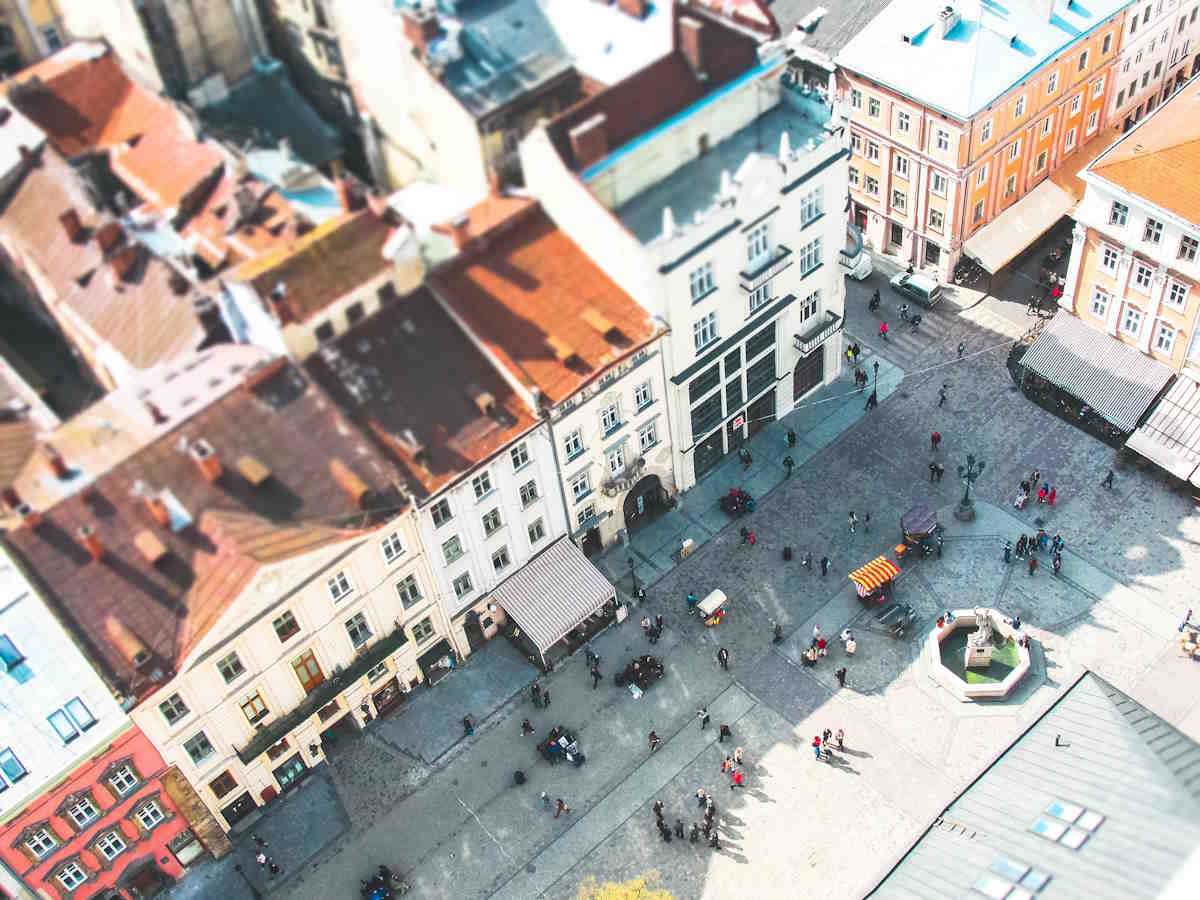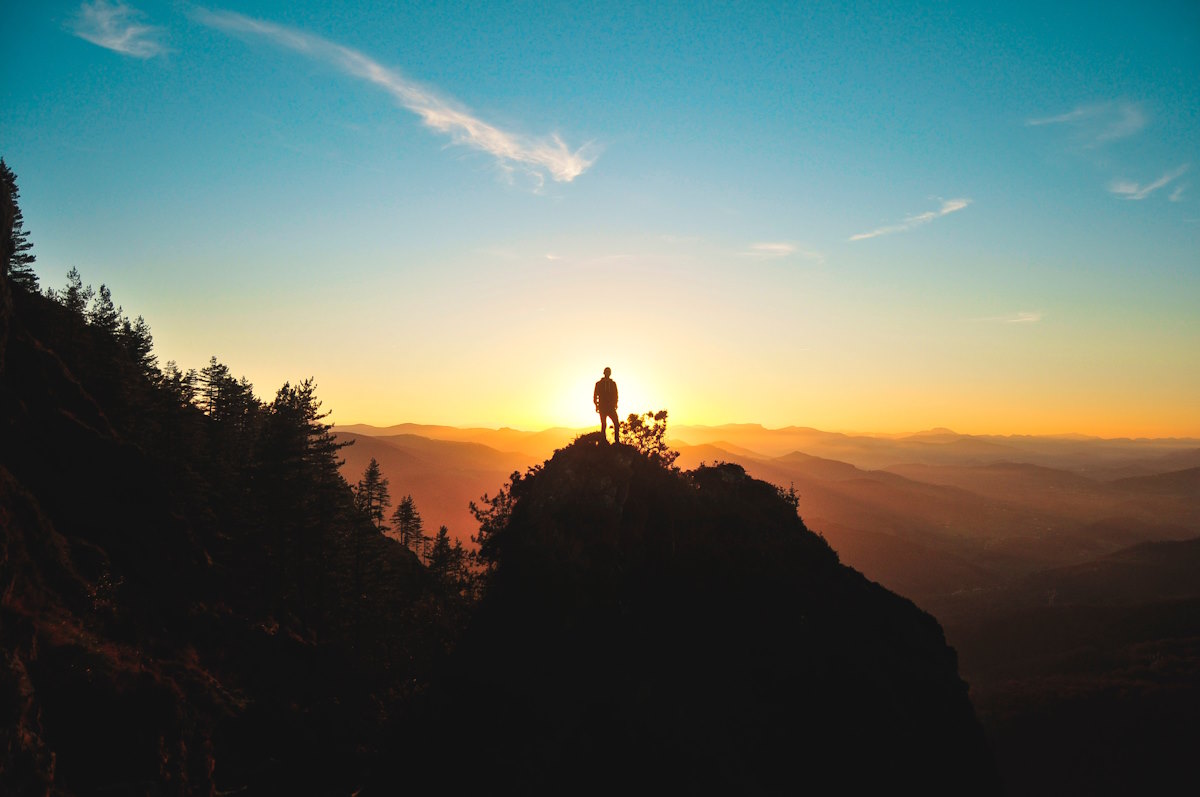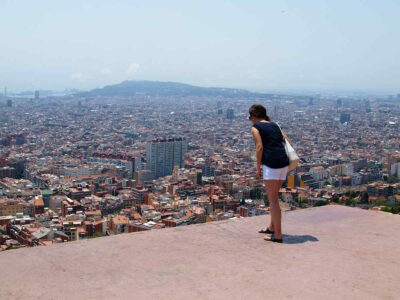Acrophobia has the potential to cause numerous symptoms. There are emotional reactions, such as panic and confusion. Then, there are physical symptoms, including shaking, sweating and shortness of breath. In addition, a fear of heights can also cause dizziness.
This article will unpack the reasons why acrophobia causes dizziness, as well as touching on the related subject of vertigo. We’ll finish with some tips on how to prevent this symptom, and on what to do should it arise.
What’s the link between heights and dizziness?
Dizziness is a common symptom experienced by sufferers of acrophobia. One of the leading theories suggests that this is caused by the brain struggling to work out the body’s position. When in a high place, our eyes are unable to properly report where we are in relation to the ground. This leads to a type of dizziness known as height vertigo.
However, this isn’t the only possible reason why you might feel dizzy due to heights. It’s also possible for people to experience panic attacks due to acrophobia. These episodes can lead to a number of different symptoms, including dizziness and feeling faint.

As an anxiety disorder, it’s also possible for acrophobia to trigger vasovagal syncope. This happens when your blood pressure suddenly drops as a result of your body overreacting to a trigger—in this case, heights. When this occurs, you experience a variety of symptoms, including dizziness, before fainting.
Finally, there’s also the possibility that you could experience dizziness in a high place because you’re hyperventilating. When your breathing is rapid and shallow, your brain is unlikely to be getting the oxygen it needs to function properly. Again, this can lead to dizziness and fainting.
Vertigo vs dizziness
We’ve already discussed the differences between vertigo and a fear of heights in a previous article on this blog. However, you might not be aware of what vertigo is, and how it differs from dizziness.
The simple answer is that dizziness is a term that can describe a range of different sensations, including lightheadedness and unsteadiness. Vertigo, meanwhile, refers to a feeling that either you or things around you are spinning. You could therefore think of vertigo as a type of dizziness.
What can you do about it?
Many people who experience acrophobia feel that their only option is to avoid heights altogether. However, this can prove seriously limiting, preventing you from enjoying the outdoors, driving, or even sitting on a balcony. Instead, we’ll present a number of ways to avoid experiencing dizziness due to heights, as well as to cope should you find yourself going through it.

Preventing dizziness
- Know where (not) to look: Instead of avoiding high places altogether, focus on tackling the symptoms themselves. For example, if you’re on a hike in the mountains, avoid looking over cliff edges or down to a steep drop. This will prevent giving your brain the confusing signals that can lead to height vertigo.
- Distract your mind: If your dizziness is brought on by anxiety, then a good technique is to take your focus away from your fears and bring yourself back to the present moment. One of the most popular ways to do this is by practising mindfulness. An easy method is to list the things you can see, smell, hear, touch and taste.
- Focus on your breathing: As we’ve discussed before, hyperventilating can be a contributing factor to the dizziness you experience in high places. Slow things down! Breathing exercises can help to restore oxygen to your blood stream, reduce your blood pressure and lower your heart rate—all of which means that you feel more relaxed. For some examples, check out the NHS guide to breathing exercises for stress.
Dealing with dizziness
When you do find yourself feeling dizzy, your first concern should always be for your safety. If you’re not already in a high place, it’s a good idea not to go any further at that moment, especially if this involves climbing a ladder. Any movements you should make should be slow and careful.
Another focus should be to avoid letting yourself spiral into panic. If you have a fear of heights, it can be all too easy to take some slight dizziness as a sign that you will fall. Here is where you can practise some of the techniques mentioned in the previous section, including breathing exercises.
Meanwhile, if you find that you frequently experience dizziness in high places—with or without other symptoms—it could be a sign that you need to take more decisive action to tackle your acrophobia for good.
Changing your outlook

If you’re tired of feeling dizzy or experiencing vertigo due to your fear of heights, help is at hand. Climb Above Fear offers a six-week therapist-led programme specifically designed to help people to overcome their acrophobia.
During your sessions, you’ll explore the causes of your phobia and get advice tailored to your situation. Our therapy is goal-oriented, meaning that you can see tangible results within weeks.
Want to find out more? Read about the Climb Above Fear acrophobia programme, or contact us to hear about how we can help you.



